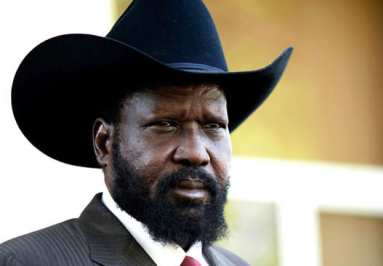S. Sudan’s unity government likely to rule till 2021: official
February 27, 2017 (JUBA) – South Sudan’s Transitional Government of National Unity (TGoNU) could, after implementing the 2015 peace agreement in good faith, remain in power until 2021, a prominent member of the Jieng Council of Elders (JCE) has said.

The JCE is a group of veteran politicians who advise President Salva Kiir on political issues.
“Two years will not be enough to get the weakened country back on its feet. Let’s be sincere, elections will not take place in 2018 if we mean genuine implementation of the peace deal in good faith. I think there are very strong reasons for TGoNU to continue into 2021, to be fair to ourselves and others”, Akuei posted on his Facebook.
The JCE official also cast doubt on whether the elections could be held on time because the people of South Sudan are not in their homes.
“Thousands are internally displaced. About 450,000 have crossed our borders to neighbouring countries, seeking refuge. And about 5,000,000 are facing lack of food in the whole country. With all these problems, we have no money to implement the peace deal. The international is not ready or committed to assist South Sudan”, he said.
The accord, Akuei stressed, has been overloaded with “a very huge national agenda”, requiring time implement it with care and trust.
In August last year, President Kiir called for an early election, two years ahead of schedule and before the completion of the implementation of the peace deal, which recommends a lot of institutional and political reforms for two and a half years of the transitional period.
He said the reason for calling for an early election is to avoid attempts to ascend to the office by other means than elections, claiming some people may take advantage of the lack of a new mandate from the people.
“We need to hear the voice of the people. If [we] don’t do so, maybe someone will wake up one day and declare a coup,” Kiir told country’s lawmakers, without hinting on whether he would step down from power.
Elections in the war-ravaged nation, in accordance with the timetable outlined in the 2015 peace agreement, are to be conducted in 2018.
(ST)
